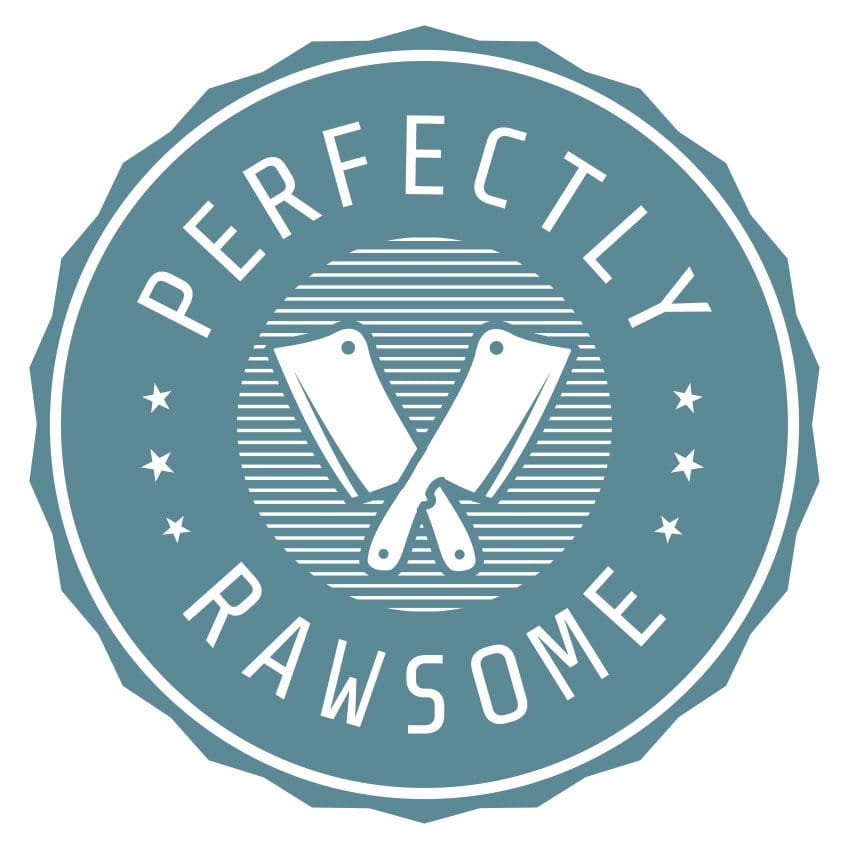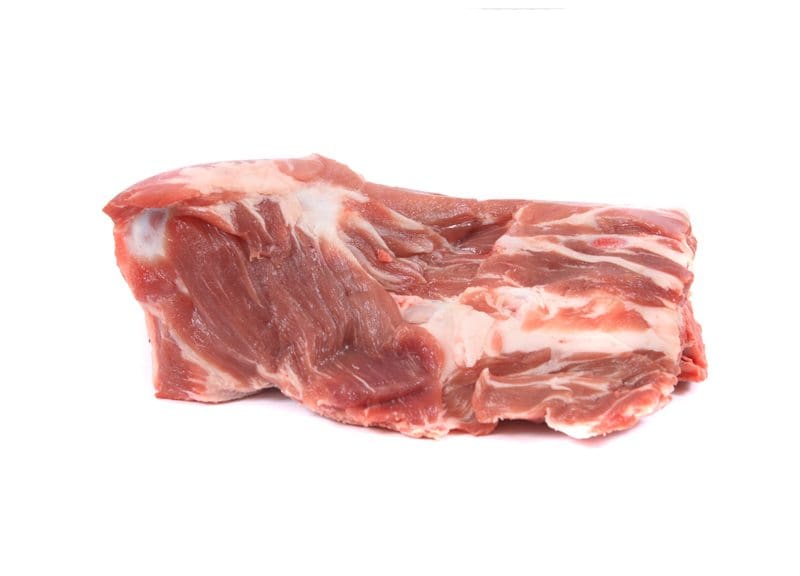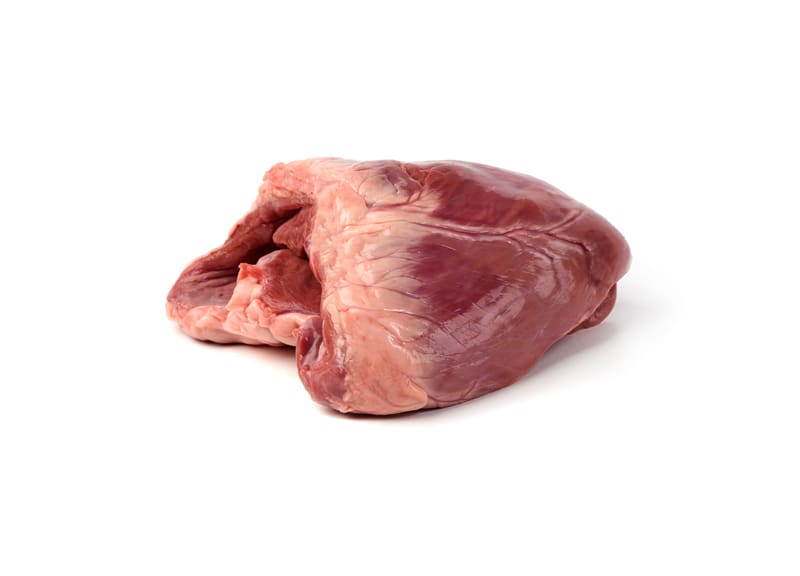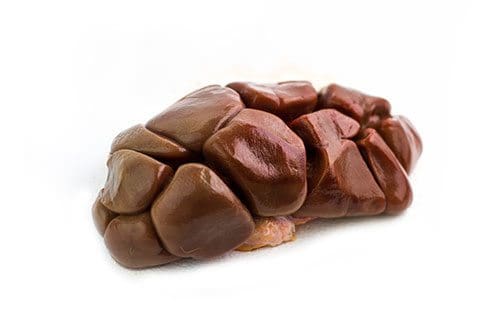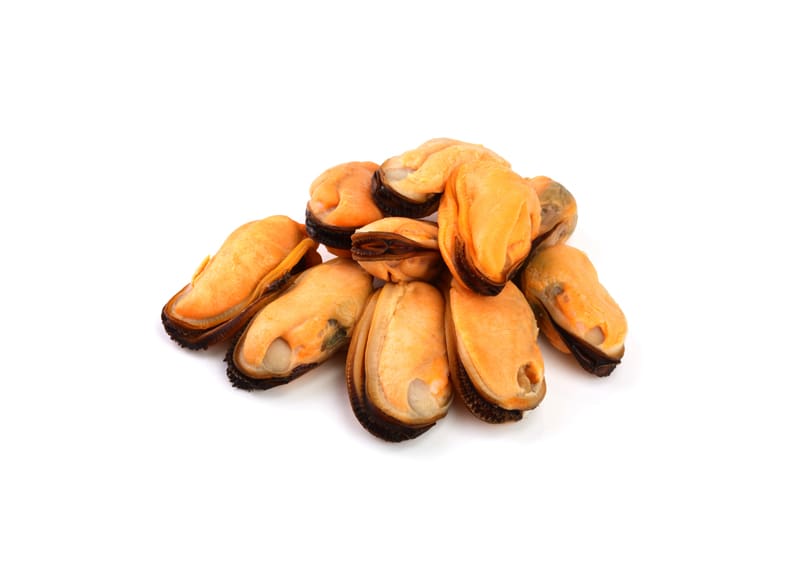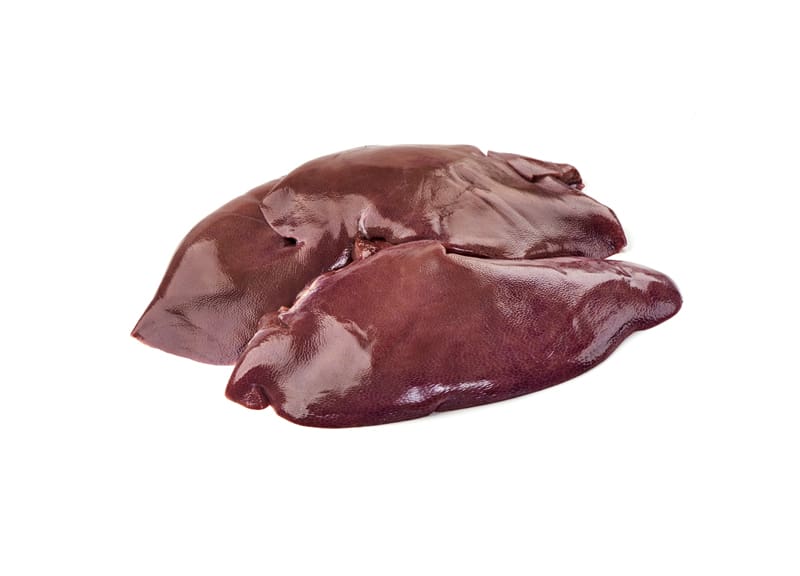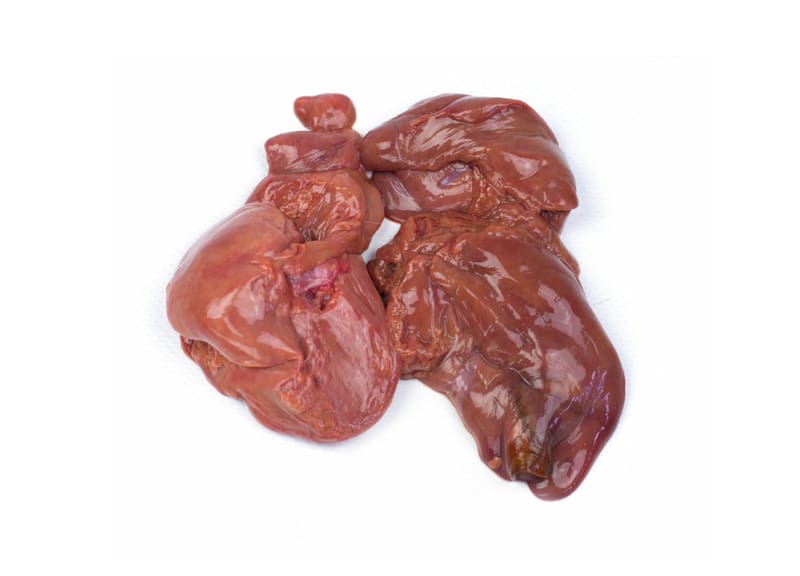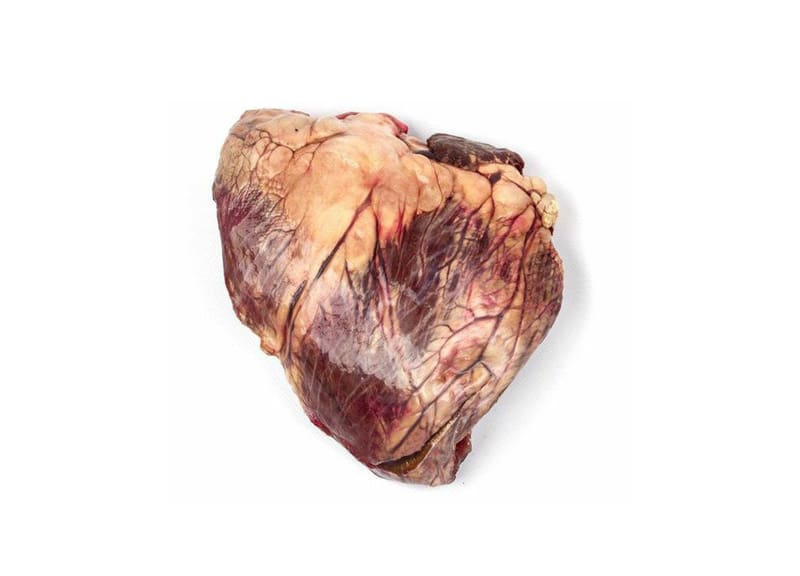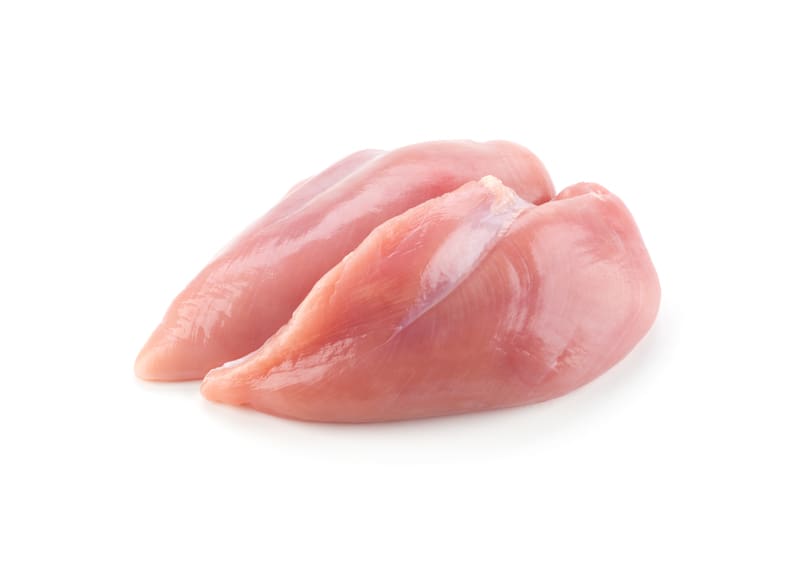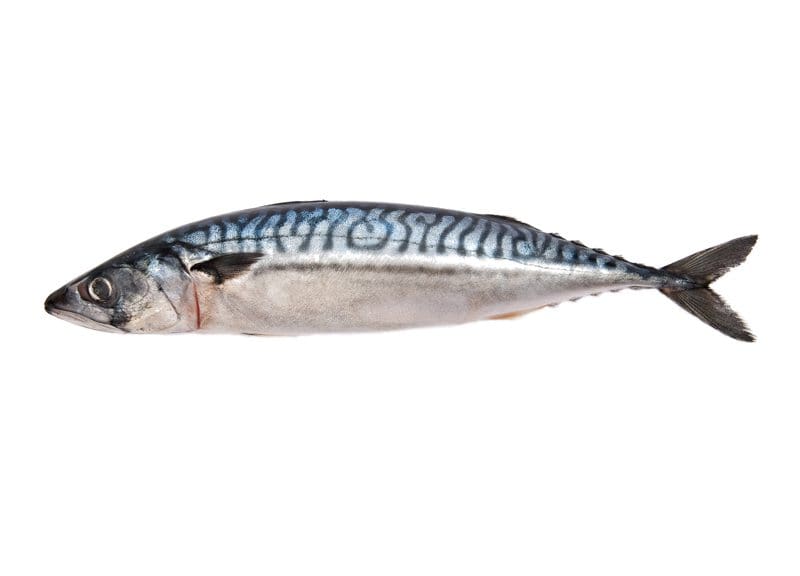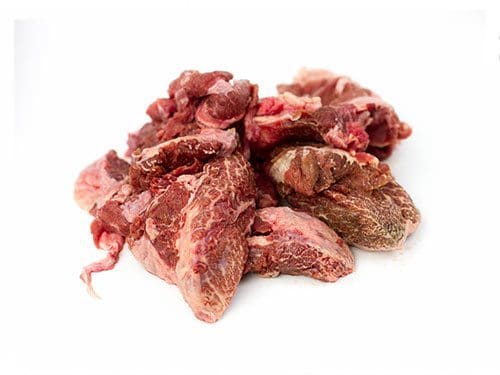A vitamin with the ability to dissolve in water is classified as a water-soluble vitamin. Excess water-soluble vitamins are not stored in body tissues, but instead, are filtered by the liver and kidneys and passed in the urine. Water-soluble vitamins are found in animal and plant foods and recommended allowances (RA) must be met daily.
There are eight essential water-soluble vitamins for dogs and cats. Vitamins B1, B2, B3, B5, B6, B7, B9, and B12 are essential water-soluble vitamins. Additionally, choline is a vitamin-like compound essential to healthy function. The body cannot synthesize these nutrients in adequate amounts and they must be supplied in the diet.
Essential Nutrients: Water-Soluble Vitamins Part 1 focuses on Vitamins B1, B2, B3, B5, and B6. The information provided below is based on a healthy pet and recommended allowances (RA) will vary on physiological state. Requirements for essential water-soluble vitamins depend on growth, lactation, pregnancy, medical conditions, and nutrient interactions within the diet.
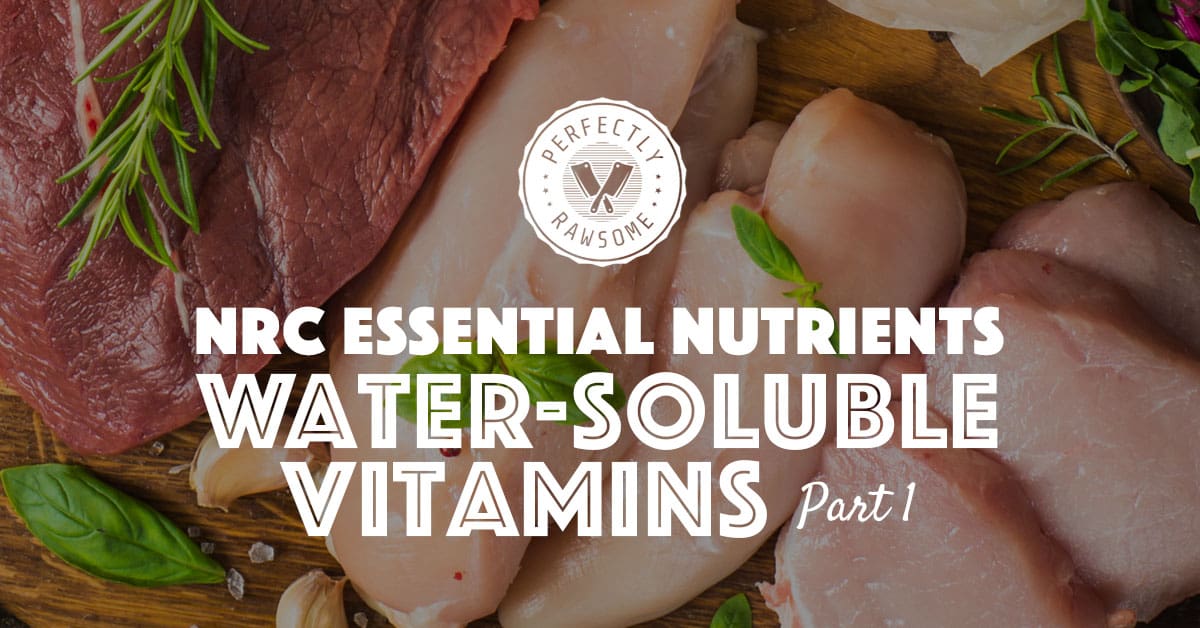
Vitamin B1 (Thiamine)
Adult Dogs
0.56mg recommended allowance
Puppies
0.34mg recommended allowance
Adult Cats
1.4mg recommended allowance
Kittens
1.1mg minimum allowance
1.4mg recommended allowance
Thiamine is found in a wide variety of foods. Animal tissues contain the highest amounts of Vitamin B1. However, thiamine can also be found in plant ingredients.
Vitamin B1 requirements are dependent on the amount of carbohydrates within the diet. However, a raw diet with animal proteins such as pork and fish will easily meet the recommended allowance for thiamine.
Certain fish contain thiaminase which an enzyme that inhibits thiamine function within the body. Limiting foods with thiaminase is recommended when selecting to feed fish and shellfish.
Vitamin B2 (Riboflavin)
Riboflavin is a water-soluble vitamin required for coenzyme activity, energy production, cellular function, growth, and development. Vitamin B2 also plays an important role in the metabolism of fats and amino acids.
The National Research Council (NRC) for dogs and cats provides minimum and recommended amounts for Vitamin B2 per 1000kcal:
Adult Dogs
1.05mg minimum allowance
1.3mg recommended allowance
Puppies
1.32mg recommended allowance
Adult Cats
1mg recommended allowance
Kittens
1mg recommended allowance
Vitamin B2 can be found in foods including proteins. Depending on the ingredients in the diet, the bacteria in the colon produces riboflavin, which is absorbed by the large intestine. The amount of Vitamin B2 produced in the colon increases after the ingestion of vegetable-based foods.
High amounts of riboflavin can be found in organ meats such as liver, heart, and kidney. Additionally, a diet including carbohydrates stimulates Vitamin B2 production in the large intestine.
Vitamin B3 (Niacin)
Niacin is a water-soluble vitamin required to convert carbohydrates into glucose to be used as energy, produce macromolecules (including fatty acids and cholesterol), facilitate DNA repair, and stress responses.
The National Research Council (NRC) for dogs and cats provides recommended amounts for Vitamin B3 per 1000kcal:
Adult Dogs
4.25mg recommended allowance
Puppies
4.25mg recommended allowance
Adult Cats
10mg recommended allowance
Kittens
10mg recommended allowance
Vitamin B5 (Pantothenic acid)
Pantothenic acid is a water-soluble vitamin required for coenzyme and carrier protein synthesization. Vitamin B5 also plays an important role in the metabolization of proteins, carbohydrates, and fats.
The National Research Council (NRC) for dogs and cats provides minimum and recommended amounts for Vitamin B5 per 1000kcal:
Adult Dogs
3.75mg recommended allowance
Puppies
3.75mg recommended allowance
Adult Cats
1.15mg minimum allowance
1.44mg recommended allowance
Kittens
1.15mg minimum allowance
1.44mg recommended allowance
“Pantothenic” means “found everywhere” because this vitamin is available in many food sources. Although Vitamin B5 can be found in many foods, the quantity present usually is insufficient to meet the recommended allowances. Highest concentrations can be found in meat-based foods.
Pantothenic acid can be found in many different foods but is in higher concentrations in meat-based ingredients. A raw diet using raw muscle meat and organs will contain efficient levels of Vitamin B5.
Vitamin B6 (Pyridoxine, Pyridoxamine, & Pyridoxal)
Vitamin B6 is a water-soluble vitamin and plays a vital role in the normal function of the nervous system, red blood cell formation, the immune system, and psychological functions. Pyridoxine is required for the conversion of tryptophan to niacin, Vitamin B6 requirements are influenced by the amount of protein in the diet.
The National Research Council (NRC) for dogs and cats provides minimum and recommended amounts for Vitamin B6 per 1000kcal:
Adult Dogs
0.375mg recommended allowance
Puppies
0.375mg recommended allowance
Adult Cats
0.5mg minimum allowance
0.625mg recommended allowance
Kittens
0.5mg minimum allowance
0.625mg recommended allowance
There are three different natural forms of Vitamin B6: Pyridoxine, pyridoxamine, and pyridoxal, all of which are natural forms of Vitamin B6 and are present in many foods. The chemical form of Vitamin B6 varies among foods. Plant ingredients contain mostly pyridoxine and meat-based foods contain mostly pyridoxal and pyridoxamine.
Like Vitamin B5, Pyridoxine can be found in many different foods, but has higher concentrations in meat-based ingredients. Pyridoxine, which is found in plants, is more stable than pyridoxal and pyridoxamine, which is found in meat-based ingredients. Processing animal-based foods has an average loss of 0 to 40% of pyridoxal and pyridoxamine.
Minimal processing on animal-based foods maintains Vitamin B6 levels. A raw diet using raw muscle meat and organs will contain appropriate levels of Vitamin B6.
CLOSING COMMENTS
Recommended allowances for water-soluble vitamins must be met daily and cannot be balanced over time because the body does not store the excess. A diet composed of raw organs, raw fish, muscle meat, plus a small amount of leafy greens, seeds, and eggs will meet water-soluble requirements in dogs. If these ingredients are not included in a raw diet, the addition of a supplement is necessary to fill nutritional gaps.
A BARF diet for dogs and PMR diets for cats easily meets water-soluble requirements without many adjustments. However, the amount of each water-soluble vitamin a pet requires is dependent on multiple factors including growth, pregnancy, lactation, and medical conditions.
